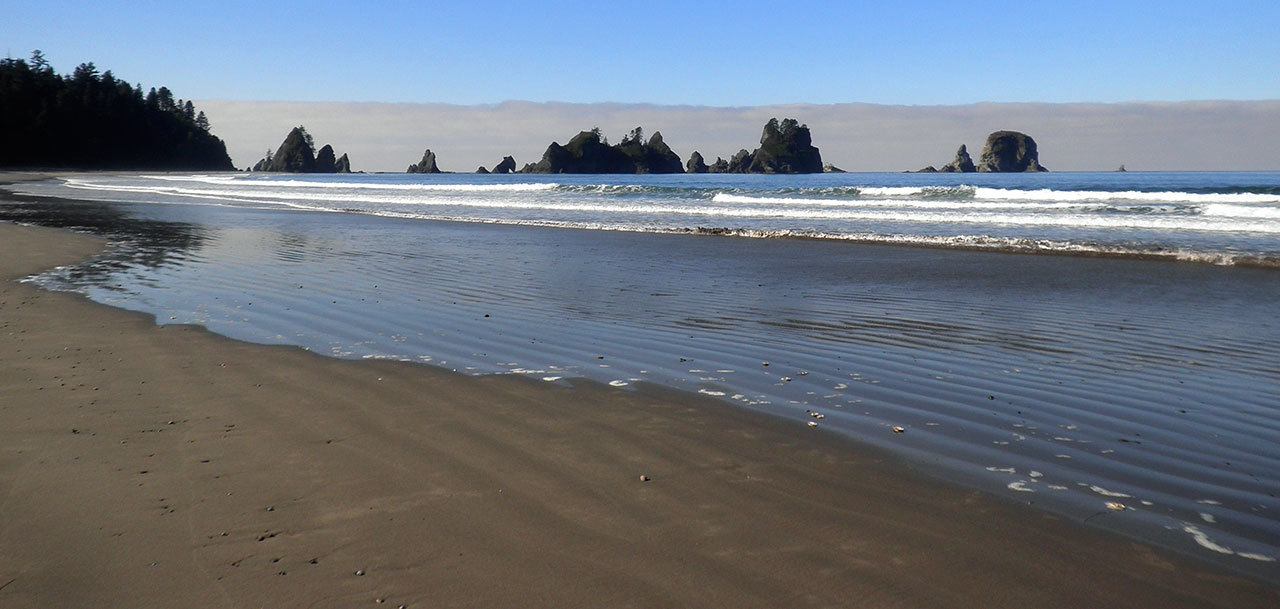By The Herald Editorial Board
You can’t really put a value on our National Parks, though there are some who might like to see what all or part of a park might fetch on the real estate market.
The parks and other National Park Service facilities, whether we’re talking about Olympic National Park in our own state, the Lake Clark National Park and Preserve in Alaska, or the Lincoln Memorial in Washington, D.C., are priceless in terms of offering recreational opportunities, preserving the natural world and protecting American history and culture.
Certainly, we know the parks are popular. A record 307.2 million people visited national parks in 2015, a record that is certain to be broken this year during the National Parks Service’s centennial.
All the same, a recent survey has attempted to measure the dollar value of our national parks and the National Parks Service programs to the taxpayers who support them. A survey by researchers at Colorado State University and Harvard University, recently assigned a value of $92 billion to the parks and NPS programs by asking Americans what they’d pay in additional federal income taxes. That’s about $10 to $15 from each individual, Public Radio International reported recently.
Compare that to what the parks receive in the federal budget; for the current year, Congress budgeted $2.85 billion. The Obama administration, is requesting to bump next year’s acquisition to $3.1 billion, with the intention of providing additional funding to pay for long-neglected restoration work throughout the system. But even that will meet only a fraction of the estimated $12 billion backlog in restoration and rehabilitation work that is necessary at our national parks.
That $92 billion is a conservative figure. The study sent surveys to 4,000 U.S. households, and got back about 700 responses. But even those who didn’t respond figured in the estimate, as the researchers gave a zero value to unreturned surveys.
Those who did respond were enthusiastically supportive of national parks, regardless of whether the respondents visited the parks or not,
94.9 percent said it was important that historical sites are protected for current and future generations;
93.5 percent said it was important that trails, parks and open spaces be protected for current future generations; and
94.8 percent said it was important that National Parks be preserved for current and future generations.
Those are figures Congress ought to consider, even after having encouraged the National Parks Service to begin looking for more funding through commercial advertising and corporate sponsorship, rather than increasing the parks budget.
But even as those surveyed said they were willing to see taxes increased to support the parks, the study’s authors weren’t necessarily advocating for higher taxes.
Linda Blimes, one of the study’s authors and a professor at Harvard’s Kennedy School, participated in the National Parks Second Century Commission, which has recommended a funding model familiar to universities, hospitals and arts groups. Along with public taxpayer support, the commission recommended partial support for national parks through an endowment, supported through philanthropy, which could provide reliable funding to begin addressing that $12 billion list of restoration work.
The parks already receive some support from the National Parks Foundation and other nonprofit organizations. The foundation provided $45 million in park funding in 2014. But an endowment, perhaps started with seed money from the taxpayers who have demonstrated their support, could provide a valuable part of the funding formula.
Whether we go by headcounts or survey results, Americans support their national parks. We’re ready to put more money behind that support.
Talk to us
> Give us your news tips.
> Send us a letter to the editor.
> More Herald contact information.

























